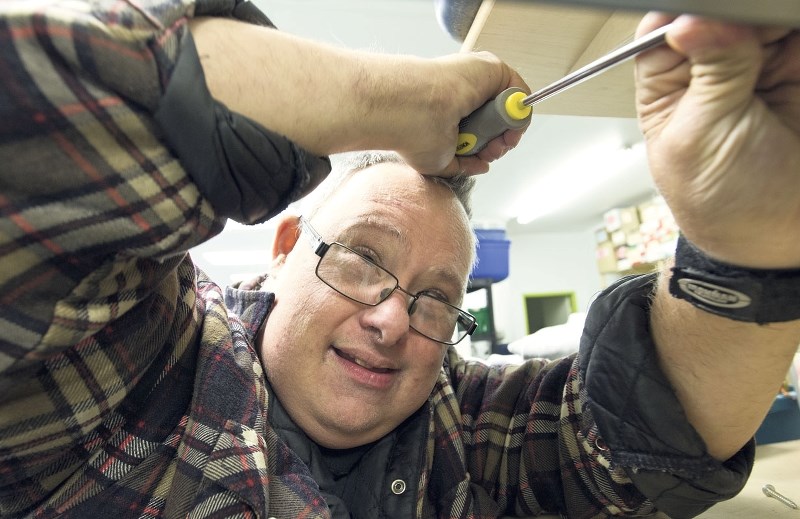The LoSeCa Foundation is taking concerns over new housing rules for people with disabilities to the Human Rights Commission.
Executive director Marie Renaud said she and the parent of a resident in one of the foundation's Edmonton homes filed a complaint last week.
She said the complaint was sparked by the province's People with Development Disabilities Safety Standards. The standards limit housing options for her clients and come with inspections that are too intrusive, she said.
"They can go in and ask questions about people's food, about their medication, about their furniture," she said. "They can literally go in and essentially look through all their stuff."
The new safety standards require service providers, such as LoSeCa, to show that the homes their residents live in comply with safety and public health acts.
A report released by the Alberta Council of Disability Services says the regulations create housing discrimination and could lead to homelessness. Renaud said the inspections make the homes feel like "nursing homes," not people's residences.
The standards also only apply to clients who require overnight care. People who receive care through their families or who do not need overnight care are exempt from the changes. Renaud questioned why that makes a difference.
"If you have a disability and can't get out (during a fire) you are going to burn if it's your family home or not," she said.
Alberta Human Services spokesman Mike Berezowsky said the safety standards required for the homes are no different than those applying to residents of a regular home, except that they come with inspections.
Inspections include everything from checking on water temperature to prevent scalding and procedures for complaints in the residence and asking about medication assistance and reminders, he said.
Asked why they only apply to people with overnight care, he said they "are the most vulnerable." The regulation was put in place after the death of a woman with disabilities in a 2007 house fire, he said.
"Because others, they are able to get out on their own in an emergency situation. This is for those who have those challenges," he said.
Housing trouble
Renaud said the foundation also ran into trouble with one of its Edmonton homes. The City of Edmonton recently created a new licensing bylaw for congregate rental units (homes that house four or more unrelated individuals).
Among other changes, the bylaw requires the owners of the home to upgrade its fire safety equipment, making sprinkler systems, hardwired smoke detectors and firewalls a necessity.
Renaud said the changes to the home are excessive and would cost the foundation up to $60,000. She is worried that residents will have to move out but won't find another place to rent in the city.
Landlords "have to make a huge financial commitment to meet these standards," she said. "They've taken away the ability for people with disabilities to just live in the community, to have support to live in the community."
The city of St. Albert does not require similar changes to congregate living units. The homes of people with disabilities in other communities undergoing inspections now usually meet the provincial safety requirements, said Berezowsky.
If an agency is having difficulty enforcing the changes or finding homes for people with disabilities "they can come to us and we can provide them with a temporary exemption for a period to give them time to make those adjustments," he said.




